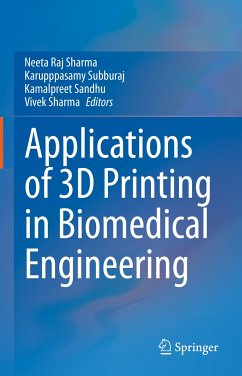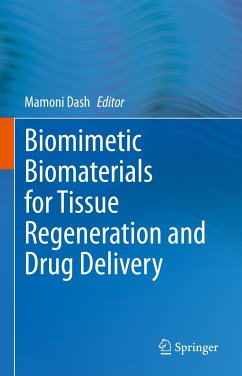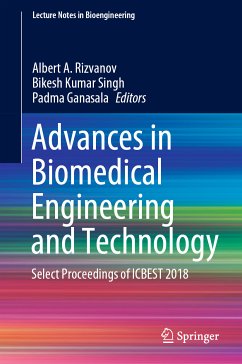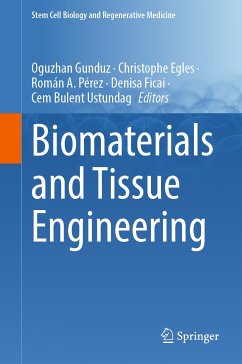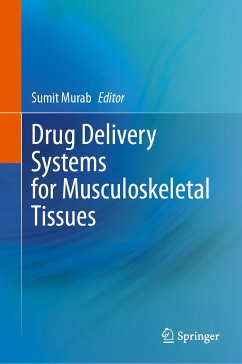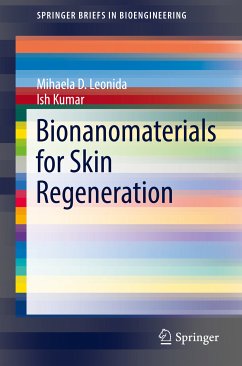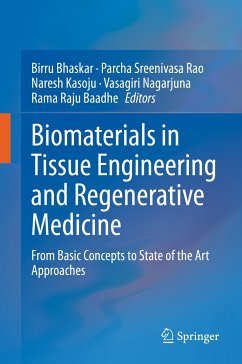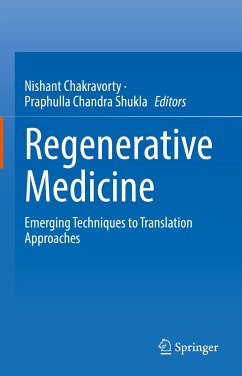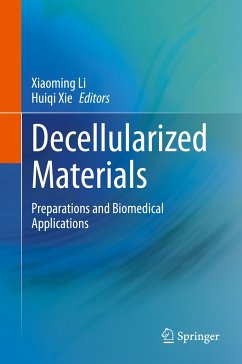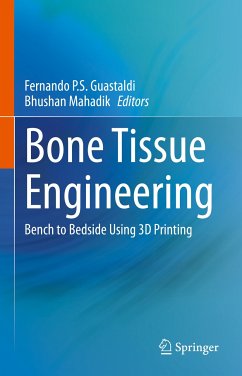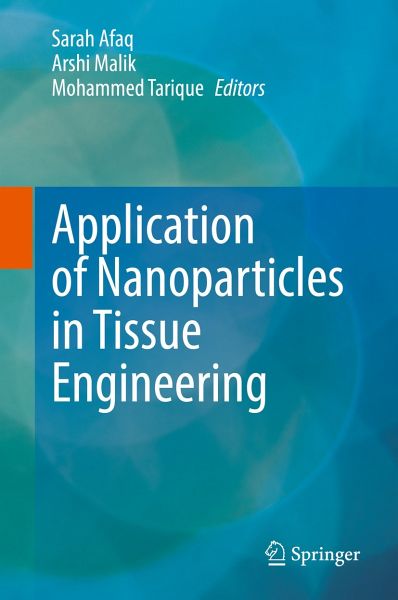
Application of Nanoparticles in Tissue Engineering (eBook, PDF)
Versandkostenfrei!
Sofort per Download lieferbar
113,95 €
inkl. MwSt.
Weitere Ausgaben:

PAYBACK Punkte
57 °P sammeln!
This book discusses advancements in the applications of nanoparticles in tissue engineering. It examines the applications of nanobiomaterials in hard tissue regeneration, fabrication, and characterization. The book also analyzes the implication of three-dimensional and four-dimensional fabrication techniques for the production of the scaffold in tissue engineering and their advantages over conventional scaffold production techniques. Further, it presents smart materials used in making 4-D scaffolds that imitate the dynamic response of tissue against natural stimuli and adapt to the microenviro...
This book discusses advancements in the applications of nanoparticles in tissue engineering. It examines the applications of nanobiomaterials in hard tissue regeneration, fabrication, and characterization. The book also analyzes the implication of three-dimensional and four-dimensional fabrication techniques for the production of the scaffold in tissue engineering and their advantages over conventional scaffold production techniques. Further, it presents smart materials used in making 4-D scaffolds that imitate the dynamic response of tissue against natural stimuli and adapt to the microenvironment by changing their conformation or other properties. It also summarizes the growing field of biomolecular detection and biosensors in tissue engineering and the increasing prominence of nanoparticles in the biosensors. Further, it provides the future outlook and associated challenges of the application of nanomaterials in tissue engineering.
Dieser Download kann aus rechtlichen Gründen nur mit Rechnungsadresse in A, B, BG, CY, CZ, D, DK, EW, E, FIN, F, GR, HR, H, IRL, I, LT, L, LR, M, NL, PL, P, R, S, SLO, SK ausgeliefert werden.



